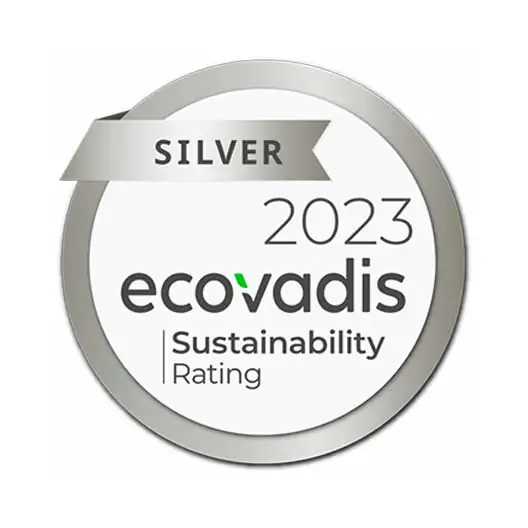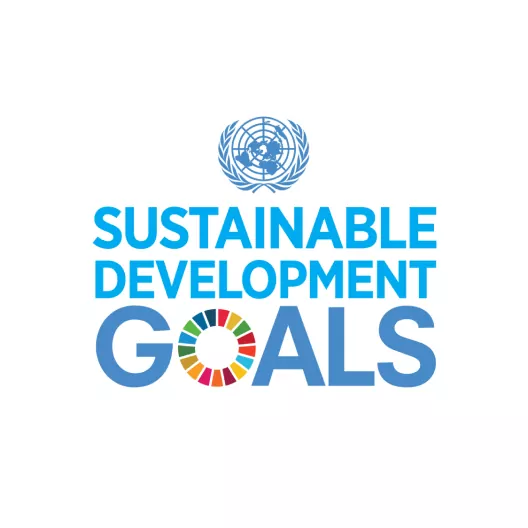Within our framework, we have defined a dedicated Global ESG Strategy, based on the following six pillars:
Business Ethics
We demand integrity and fairness of ourselves and from our business partners.
Quality & Customer orientation
We work every day to unlock our customers’ full potential, offering tailor-made and high quality solutions
Supply Chain Management
We want to team up with our suppliers to generate and enhance shared value along the entire supply chain
Innovation & Circularity
In addition to offering world-class innovation consultation to our customers we encourage creative thinking into every function
People
We empower our people and foster a working environment that encourages engagement and collaboration at all levels of our organization.
Health, Safety & Environment
We will play our part in mitigating climate change by partnering with suppliers and customers to reduce emissions throughout our value chain.
OUR materiality matrix
The materiality matrix is the instrument that summarizes and defines the most relevant sustainability topics considering Berlin Packaging significant economic, environmental, and social impacts Berlin Packaging has detected 15 material topics under the social, environmental and governance perspective.

Product Quality & Safety
Sharing policies among all the Group to improve processes and gurantee customer satisfaction, also in terms of ESG. Implement measures to engage customers also on ESG topics.
Sustainable Products & Circularity
Invest in R&D to foster and re-think the design of products with the aim of light weighting and increasing the reusable and returnable packaging, also in partnership with other stakeholders.
Long-Term Value Creation
Business Resilience &Long-Term Value Creation
Integrale ESG considerations into the business strategy and orient business to create sustainable economic value for all stakeholders.
Supply Chain
Management
Responsible Supply Chain Management
Responsible and ethical purchasing policies that imply the suppliers selection, considering their ESG performance. Working on a Suppliers Code of Conduct and define specific audit programs to monitor suppliers' performance.
Low-Carbon Society
Climate Change & Low-Carbon Society
Reduce emissions along value chain, working with customers and suppliers. Work on energy efficiency, fostering the use of renewable fuel sources and improve logistics.
Strategy
Innovation Strategy
Develop new techonologies that can affect customer relationships and the business (e.g. Blockchain in the supply chain to increase traceability, use of Artificial Intelligence and digitalization).
Business Ethics
Governance & Business Ethics
Enforce control over ESG topics, with specifici roles at Corporate level and a inter-company committee to share best practices. Foster employees' training on anticorruption and antibribery.
Opportunity &
Inclusion
Diversity, Equal Opportunity & Inclusion
Promote diversity, equal opportunity and inclusion, sharing a non discrimination culture that enhances different abilites, backgrounds, experiences and orientations.
& Skills Development
Talent Management & Skills Development
Enhance talent management and career-development programs, that promote talent retention and attraction through training activites and skills programs contributing to personal advancement.
Employee Safety & Wellbeing
Ensure work-life balance through measures such as parental leave, medical and financial benefits and well-being initiatives. Develop HSE management systems within the Group.
and Security
Data Privacy and Security
Implement measures to ensure transparency about how data of customers (and in general stakeholders) are gathered, used, and secured. Implementing procedures and specific training to customer privacy protection.
Management
Water Management
Work on water management with dedicated plans and goals to share with stakeholders to reduce water-related impacts of the Group operations.
and Social Dialogue
Industrial Relations and Social Dialogue
Promote the organization’s consultation on labor practices with employees and trade unions.
Preservation
Biodiversity Preservation
Work on the main significant impacts of activities, products, and services on biodiversity.
Local Communities
Engage and Support Local Communities
Develop programs and initiatives with local community engagement, encouraging team members to support the community where they work.
Sharing policies among all the Group to improve processes and gurantee customer satisfaction, also in terms of ESG. Implement measures to engage customers also on ESG topics.
Invest in R&D to foster and re-think the design of products with the aim of light weighting and increasing the reusable and returnable packaging, also in partnership with other stakeholders.
Integrale ESG considerations into the business strategy and orient business to create sustainable economic value for all stakeholders.
Responsible and ethical purchasing policies that imply the suppliers selection, considering their ESG performance. Working on a Suppliers Code of Conduct and define specific audit programs to monitor suppliers’ performance.
Reduce emissions along value chain, working with customers and suppliers. Work on energy efficiency, fostering the use of renewable fuel sources and improve logistics.
Develop new techonologies that can affect customer relationships and the business (e.g. Blockchain in the supply chain to increase traceability, use of Artificial Intelligence and digitalization).
Promote diversity, equal opportunity and inclusion, sharing a non discrimination culture that enhances different abilites, backgrounds, experiences and orientations.
Enforce control over ESG topics, with specifici roles at Corporate level and a inter-company committee to share best practices. Foster employees’ training on anticorruption and antibribery.
Ensure work-life balance through measures such as parental leave, medical and financial benefits and well-being initiatives. Develop HSE management systems within the Group.
Enhance talent management and career-development programs, that promote talent retention and attraction through training activites and skills programs contributing to personal advancement.
Implement measures to ensure transparency about how data of customers (and in general stakeholders) are gathered, used, and secured. Implementing procedures and specific training to customer privacy protection.
Work on water management with dedicated plans and goals to share with stakeholders to reduce water-related impacts of the Group operations.
Develop programs and initiatives with local community engagement, encouraging team members to support the community where they work.
Promote the organization’s consultation on labor practices with employees and trade unions.
Work on the main significant impacts of activities, products, and services on biodiversity.
BERLIN PACKAGING COMMITMENT TOWARDS SDGs
Berlin Packaging is committed to pursuing our business goals per the Sustainable Development Goals framework, as recognized under the United Nations Agenda 2030. Within this framework, we have identified specific Sustainable Development Goals and targets upon which we can impact and are aware of our responsibility to contribute and mitigate our performance.
The Sustainable Development Goals represent a framework by which our commitment is disclosed and a driver to promote and implement a sustainable and responsible business.
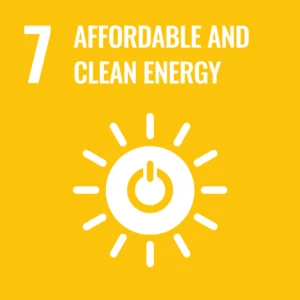
SDG GOAL
AND TARGETS
7.2 – By 2030, increase substantially the share of renewable energy in the global energy mix.
7.3 – By 2030, double the global rate of improvement in energy efficiency.
BERLIN'S
WORKSTREAMS
- Operations
- Supply Chain
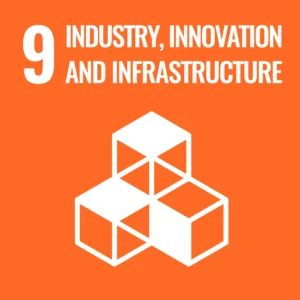
SDG GOAL
AND TARGETS
9.4 – By 2030, upgrade infrastructure and retrofit industries to make them sustainable, with increased resource-use efficiency and greater adoption of clean and environmentally sound technologies and industrial processes, with all countries taking action in accordance with their respective capabilities.
BERLIN'S
WORKSTREAMS
- Operations
- Supply Chain
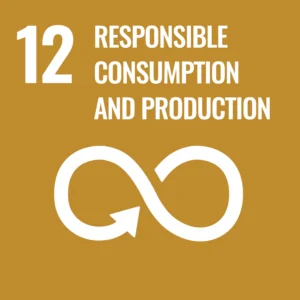
SDG GOAL
AND TARGETS
12.2 – By 2030, achieve the sustainable management and efficient use of natural resources.
12.3 – By 2030, halve per capita global food waste at the retail and consumer levels and reduce food losses along production and supply chains, including post-harvest losses.
12.6 – Encourage companies, especially large and transnational companies, to adopt sustainable practices and to Integrate sustainability information into their reporting cycle.
BERLIN'S
WORKSTREAMS
- Operations
- Supply Chain
- Sales Enablement
- Products Innovations
Berlin Packaging Achieves EcoVadis Silver Sustainability Rating
Berlin Packaging is pleased to announce that it has been awarded the EcoVadis Silver sustainability rating, reflecting its commitment to sustainable practices and responsible business operations.
This year, the company ranked among the top 22% of companies assessed by EcoVadis, reflecting the ongoing efforts to minimize the environmental impact, promote ethical practices, and prioritize social responsibility. This recognition is a significant milestone and reinforces the dedication to building a more sustainable future.
